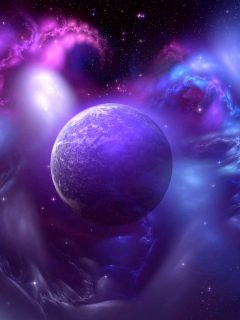The Lost Science of Astrology
The Lost Science of Astrology
While astrology has been lumped together with other metaphysical studies, has it been done an injustice in the scientific community, where it was once seen as a legitimate “serious” study along with astronomy, biology, and chemistry? According to the Irish Times, that may just be the case, and many have overlooked the lost science of astrology.
In an interview with British philosopher and author Martin Cohen, IT presented the author’s argument that “astrology is one of the few things that religious folk and irreligious scientists can agree on.” While that may be a rather ambiguous comment on whether he endorses astrology, his most recent book, Paradigm Shift: How Expert Opinions Keep Changing on Life, the Universe and Everything, clearly makes a case for astrology as a legitimate scientific pursuit.
Among the evidence Cohen uses to support his theory is an interest in astrology by none other than Isaac Newton, who only became interested in math after buying a book on the topic. Newton hailed astrology as “one of the great studies of mankind.” He also made the distinction between predictions, such as what one associates with psychics and fortunetellers, and divination using horoscopes or zodiac signs, looking for patterns that tell us more about ourselves and how we react (or should react) to certain situations.
Cohen does seem to take some exception to the Aries personality, which he associated with “rude energy,” citing the four “Horsemen of Atheism” — Richard Dawkins, Christopher Hitchens, Sam Harris and Daniel Dennett — as prime examples of Aries personalities.
(Some of us Aries take exception to that characterization, Mr. Cohen. I’m sure we could find many unflattering things to say about his sun sign as a Capricorn (stubborn?), but I’ll refrain from being “rude.” Especially since I am a Capricorn rising myself.
The interview was based around a concept of Cohen’s:
“By presenting ambiguous, vague answers, astrology pushes the seeker to extract information that is really not so much there in the answer but in their own subconscious. It unblocks our minds and frees them to see things in a new way.”
Having said that, however, Cohen backtracked a bit on the value of astrology as a tool for predicting future events.
“Actually, I’m not sure that I do want to give the nod to the description of astrology as a poor predictor, as that reinforces the stereotype image of the subject as given in newspaper columns. My suggestion is to see it as a tool for interpreting the world, and in particular each individual’s relationship to it – I mean, in psychological terms. This way, I think, astrology is full of rich and subtle insights. How it arrives at them is of little importance.
Do you agree? Do you feel astrology is a “real” science and should be recognized as such? Comment below!
Recommended Reading...
Tarot and Psychic Readings
Tarot Card Meanings
Learn to Read Tarot Cards
Choosing the Best Psychic Reading Website
How to Spot Psychic Scams
Get the Most Out of a Psychic Reading
Can You Develop Psychic Abilities?
Buy Tarot Cards
Blogroll
Horoscopes & Astrology
Free Horoscopes
What's Your Zodiac Sign?
In-Depth Astrology Reports
Learn Astrology
Become an Astrology VIP
Buy Zodiac Jewelry
Copyright 2013-2016 Tarot And Horoscopes.com. All rights reserved.


